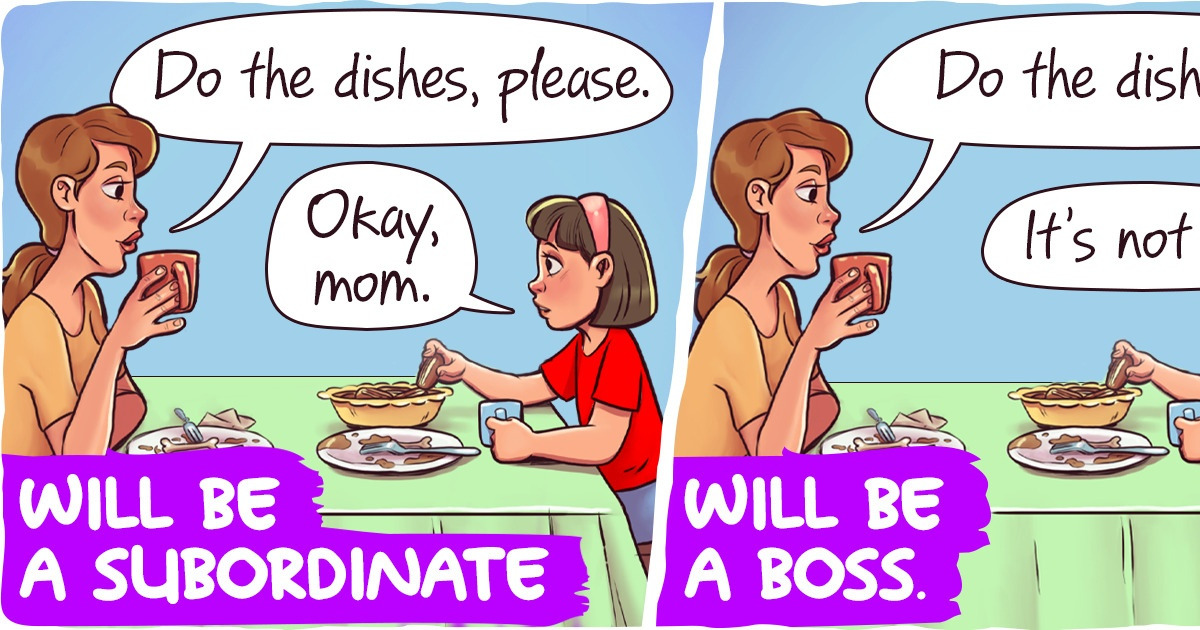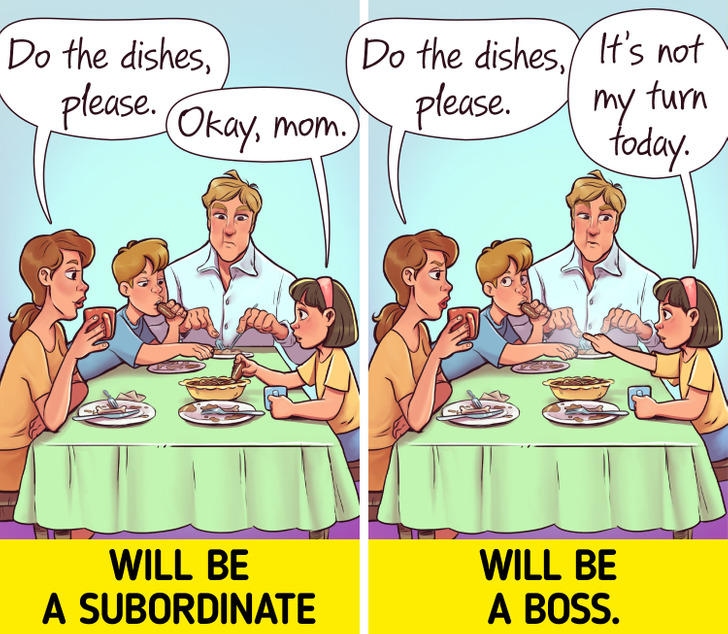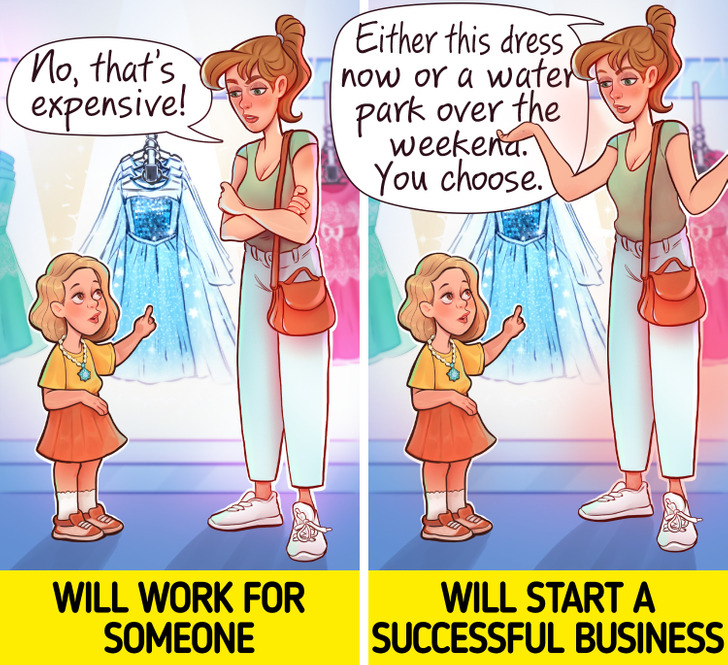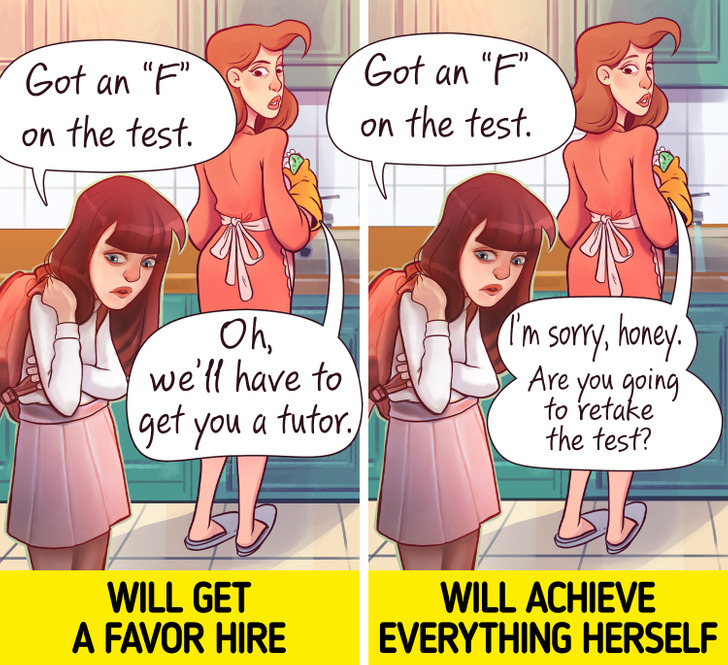15+ Pics of Kids That Immortalized a “Special” Moment in Their Lives


Raising a girl is a hard and long process from a psychological standpoint and can have even more complexities than raising a boy. In the past, the concept of raising a “good girl” was popular and served as a model to aspire to. However, nowadays, this idea is likely to face some resistance, as being a “good girl” has become synonymous with being a “yes person.”
This should be done not to make sure she can do any type of work in adulthood, but to get her to appreciate any work and cooperation. It doesn’t matter what type of tasks she performs (taking out the garbage, doing the dishes, walking the dog, or folding clothes). The main thing is that it will teach her to be responsible.
Lythcott-Haims, former dean of freshmen at Stanford University and author of “How to Raise an Adult,” said, "If kids aren’t doing the dishes, it means someone else is doing that for them. And so they’re absolved of not only the work but of learning that work has to be done and that each one of us must contribute for the betterment of the whole.
The notion that what’s inside is more important than one’s appearance seems obvious. But when it comes to girls, they’re praised for their beauty first and foremost, as if it’s their main achievement. Experts recommend primarily paying attention to your daughters’ ideas, creative skills, and behavior. It doesn’t mean that a girl can’t be told that she’s beautiful, but this type of praise should be said only after they are praised for something more important.
Praising a kid for their talent or intellect is also not the best option. In this situation, you’ll complement your daughter for something that doesn’t depend on her, because it’s something she has no influence on. Researchers recommend praising children’s efforts that they applied to get things done. This encourages them to develop further and put forth even more effort.

“Good girls” always listen to their moms and never push back. But is Mom always right? Even if she is, why should a kid always agree with her? Parents can be mistaken too. So why should parents’ words be the only correct ones in the family?
Experts believe that a girl should be able to challenge you in order to learn to do the same thing with classmates, teachers, romantic interests, and future bosses. When having a sensible conversation with your kid, you’ll not only teach them to say “no,” but also explain their point of view. You’ll see that you will learn many new things as well.

It’s important to be able to make quick choices in the modern world, and many people find it difficult to do this because they were not taught how to do it in childhood. Try to give your daughter the opportunity to choose things for themselves whenever possible. They can decide which toy they want to buy when they are little, what color dress they want, and what to have for breakfast.
In the future, they will opt for hobbies and extracurricular activities themselves. Yes, they will likely quit many of those activities, but it’s better to try things once rather than regret never doing so later on. After all, how are kids supposed to know which activities they like doing and which ones they don’t?

Letting a kid cope with a difficult situation on their own means they are not only rehearsing for scenarios of adult life but it is also teaching them to take responsibility for their decisions.
The author of the world bestseller, How to Raise Successful People, Esther Wojcicki, believes that parents are too overprotective nowadays. It has all resulted in a generation that is unable to take responsibility. Many young people simply are not aware that they can solve their issues themselves, without their parents.
She says that being a teacher at Stanford, she sees many parents moving to this city to help their “kids.” They moved here and changed their lives because their offspring enrolled in the local university! She says some parents look like snowblowers to her because they are ready to clear their kids’ way so that they never face any difficulties at all. The scariest thing is that kids are well aware of it and count on it.
And you know what? I trust her. She has 3 daughters: the eldest is the CEO of YouTube (in 44th place of America’s Self-Made Women 2019, according to Forbes), the middle one is the head of an innovative company for genetic testing, 23andMe (in 33rd place on the same list), and the youngest daughter is a professor of podiatry at a university in California.
Oftentimes, parents read to their kids on autopilot, not thinking about the content of the text, and girls start to get bored. But the goal is to engage my daughters in the process so that they become interested in books and, in turn, in knowledge as well.
Experts recommend engaging in active reading to help your kid to take part in the process, not just as a passive reader. For example, you can ask your daughter to read some passages by herself or ask what turns, in her opinion, the plot will take, or what she would do if she were the main character. If she is still little, ask her to turn the pages for you.
Yes, we know that it’s popular to censor fairy tales nowadays because they show outdated models of behavior and are full of sexism, abuse, and other types of shaming. But first and foremost, fairy tales are just cool. Plus, you can always find many other meanings in them. For example, Cinderella’s life didn’t change until she got tired of being obedient.

A kid’s hobby can become their profession in the future. Support and the opportunity to focus on what she really likes are important for a girl. However, if you try to make her a master of all, you may miss her major talent and lose it.
Experts recommend parents help kids with making decisions when it comes to choosing a future career instead of imposing it. They should also give their kid the time and freedom to discover their skills, provide motivation for development and achievements, encourage making their interests and aspirations come true, and help kids believe in themselves.
Of course, we do understand that the principles of raising kids are an individual thing, and it can’t be the same for everyone. Still, the more we know, the higher the chances that the process will go smoothly and that we’ll point her in the right direction. What advice would you add to this list?











